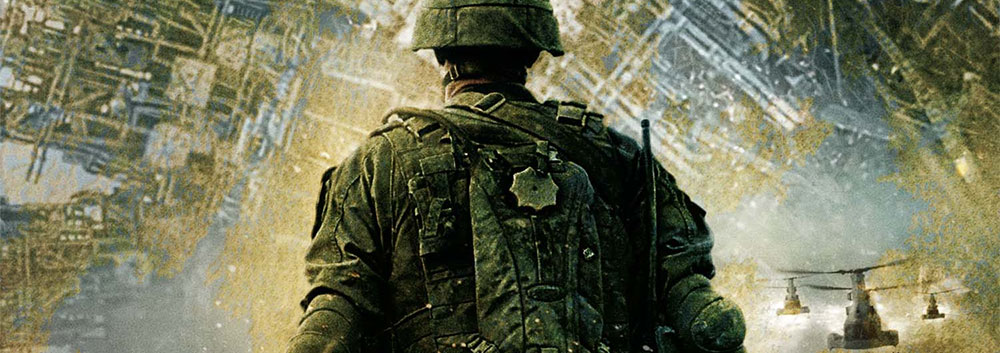I recently finished a great history of the Roman republic by Tom Holland called Rubicon. My friend Ian was telling me about it and got me interested in it, so I owe him credit for changing my opinions on the ancient Romans.
I always liked the ancient Greeks more than the Romans. The Greeks invented so much of what we call ‘civilization’ today, whereas the contribution of ancient Rome seemed only to be a brutal domination of the world and a little expansion of the idea of the “universal empireâ€.
What I didn’t realize is the distinction between the Roman Republic, and the Roman Empire. And while the Romans may have improved upon Greek technologies and ideologies, there is an amazing amount of originality in their history, and understanding how they came to rule the known world is a useful exercise.
Plus, one things the Romans were never lacking in was colorful characters, and Rubicon’s narrative style transports you in time while giving you the necessary context to understand what you are seeing, all the while moving through four hundred years of history at a good clip. Not an easy task to manage.
So yes, I appreciate the amazing achievements of the Romans now a bit more, and understand their history, and therefore the history Western Civilization a bit more, but those aren’t the most important things I learned. The reason I liked Rubicon so much, besides all of its academic value, is the way that you can see the parallels between ancient Roman society, and present-day American society.
True, there is much more different than there is similar between the two, but the book shows you how a society 2,400 years old was driven by many of the same fundamental desires and ideologies as society today, and it also highlights some of the perils of becoming an imperial power.
The entire ideology of ancient Rome was based around three central ideas: the rule of many (as opposed to the rule of a king or dictator), the incessant and life-long struggle to achieve glory and status, and a social structure which included enough flexibility to allow everyone an opportunity to advance (or diminish) their standing in the world. In many ways, ancient Rome was the precursor to the American Dream.
Each year a census was performed where every citizen was obliged to show up and have their assets counted. This administrative task made it easy to collect taxes for the government, but it also provided an incentive for everyone to show up and tell the truth about exactly how much they owned. You see, your status in Roman society was determined by how much you had, and if you decided not to declare your assets, yes, you might avoid some taxes, but you might also risk being lowered in class, a dishonor which Romans would never abide. So the goals of the state and the goals of the citizens were in alignment.
From a business school point of view, there is a theory of motivation called Expectancy Theory, which states that people do things based on an initial calculation of the benefits of doing them versus the risks/costs, their expectation that they can actually accomplish the task, and their belief in the correlation between their actions and the reward. Ancient Rome set up a very powerful system which used expectancy theory to get their citizens to engage in the behavior that they desired: endless toil for the honor of the Republic.
They were also extremely arrogant. They could not tolerate being second-best at anything, and wiped out entire civilizations which they viewed as threats. Their reactions were one-dimensional, and often over-the-top, even for their own time period. Sound like any other modern country you know.
The strength of the Roman social system fuelled a conquest of every nation in the known world (save some in the Middle East and India) and their very success was the root of their downfall. The Roman social system was set up as a huge contest in which everyone had to participate. Being from an ancient patrician family might endow you with wealth and status to begin with, but the glory of the system was that each generation needed to keep up the tradition of greatness, or its stock would lose value and they may eventually degenerate into obscurity.
The problem was that the game had incredibly complex rules and was set up to be conservative. The rules were intended, like genes, to ensure the longevity of the system. But as the rewards grew ever larger, as the resources of the players of the game grew beyond what the original rules were set up to handle, the Romans increasingly faced situations where their old rules were not sufficient to keep their system in balance. The desire for glory was still there, and still the main driver, but the resources available to a citizen to pursue the attainment of that glory were sometimes greater than the checks which were to keep everyone playing according to the rules.
The inevitable happened. People wanted the reward, saw that they had the means to get it, and used their resources in ways that were not sanctioned by the traditions and mores, because they made the choice that the attainment of the reward was worth the risk of breaking the rules.
And the balance tipped toward tyranny once again. After over 450 years of rule as a Republic, after two civil wars within 100 years, and the huge expansion of Rome’s power, the system collapsed with the seizing of power of Julius Caeser, and the subsequent victory of his chosen heir Octavian, who succeeded in consolidating power after Caeser’s death and continued his tradition of dictatorship.
It would be incorrect to portray that shift as signaling the downfall of the Roman Empire. In fact, the Empire continued to expand its power and domain for hundreds of years, but it was never again a Republic, where the constant, yearly changing of the leadership, and the division of power between two elected co-consuls would ensure a dynamic and adaptable leadership and a continually incentivized populace.
Bringing the lesson to today’s world, I view America as occupying much the same position as ancient Rome, and facing many of the same risks. After the fall of the Soviet Union a unifying principle which provided an identity for the American people disappeared.
It would be wrong to say that abuses of power, such as the efforts made to convince the legislature and the populace to support a war in Iraq, were only possible after the fall of the Soviet Union. They were possible previously as well. It would also be wrong to suggest that in some way the system of rewards and incentives in America is broken. Or that there has been a takeover of a dictator or any other major change in our political system.
But the lesson that the ancient Romans can teach us is that when the geopolitical environment changes, your own system must either adapt with the changes, or face eventual oblivion. Evolution. (Which seems to be out of favor in today’s environment.)
The world is different today than it was 50 years ago. It is even vastly different from what it was 15 years ago. And 15 years from now it will be even different still. Europe continues to attempt to consolidate economically and politically (although I would argue that the next 15 years will see a slowing of the expansion of that consolidation and a period of turbulent assimilation work for Europe). 15 years from now China will be the number three or number two economy in the world and will have a military able to project power at will.
Where will America be 15 years from now?
I would hope that we are not joining the ghosts of the Romans in the pantheon of fallen societies. I don’t think so (after all, it took Rome over 400 more years to truly fall).



2 Comments
mochasteak.com » Blog Archive » Rome - The Forum and Palatine Hill · March 8, 2006 at 10:47 pm
[…] A few months before I went to Rome I had just finished watching the HBO miniseries and finished reading a great book about the ancient Roman Republic. I had never given much credit to the Romans until I read Rubicon (see why). […]
Comments are closed.